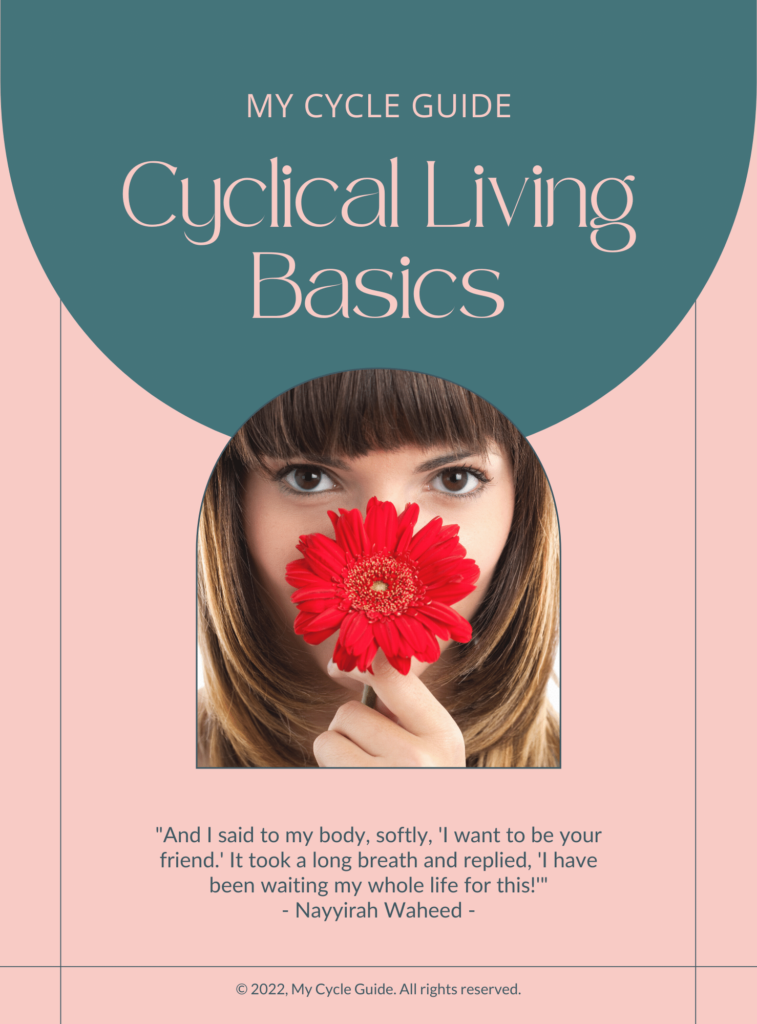Understanding Depression – Depression is a common mental health disorder characterized by persistent feelings of sadness, loss of interest in activities, and difficulty with daily functioning. It’s more than just feeling down or having a bad day; it’s a condition that affects both mental and physical health.
Why is Understanding Depression in Cyclical Living Important?
By understanding how your menstrual cycle can influence your mood, you can gain a greater sense of control over your mental health.
Identifying the times in your cycle when you are more susceptible to depression can empower you to prepare for these periods. This might mean scheduling self-care activities, speaking to a counselor or therapist, or letting friends and family know that you might need extra support.
Understanding the cycle-depression connection also provides valuable insights for conversations with your health care provider. For instance, it can inform decisions around medication dosage, as you may benefit from adjusting antidepressant dose based on the menstrual cycle.
How Does Depression Relate to the Menstrual Cycle?
Depression can often feel like an unpredictable storm, but for many individuals, patterns do exist. One significant pattern lies in the link between depression and the menstrual cycle. Hormonal fluctuations throughout the cycle can influence mood and trigger symptoms of depression.
During a menstrual cycle, the levels of estrogen and progesterone in your body rise and fall. These hormones can affect your body’s production of serotonin, a neurotransmitter that helps regulate mood, sleep, and appetite. Lower serotonin levels can lead to depressive symptoms.
For example, in the luteal phase of the menstrual cycle—after ovulation and before your period starts—estrogen and progesterone levels drop dramatically. This sudden decrease can result in worsening depressive symptoms for some individuals.
Different Aspects of Depression in Cyclical Living
Depression isn’t experienced the same way for everyone. Some individuals may notice an increase in depressive symptoms during the luteal phase (post-ovulation), while others may experience heightened depression during menstruation. Premenstrual Dysphoric Disorder (PMDD) is a severe form of premenstrual syndrome that includes symptoms of severe depression.
How Can You Manage Cyclical Depression?
Managing depression in relation to your cycle can involve several strategies:
- Cycle tracking: By tracking your cycle and noting your mood, you can identify patterns and anticipate periods of increased depression.
- Lifestyle modifications: A balanced diet, regular physical activity, and adequate sleep can all help regulate mood and reduce depressive symptoms.
- Stress management techniques: Practices like yoga, meditation, and deep breathing exercises can help manage depression.
- Seeking professional help: If depression is significantly impacting your quality of life, consider seeking help from a healthcare provider or mental health professional.
The Emotional Impact of Depression
Depression can significantly impact emotional wellbeing, potentially leading to increased stress, feelings of hopelessness, decreased motivation, and social withdrawal. However, with understanding and effective management of cyclical changes, you can feel more empowered and in control of your emotional health.
Frequently Asked Questions about Depression and Cyclical Living
- How does the menstrual cycle affect depression levels? Hormonal fluctuations throughout the menstrual cycle can influence brain chemicals, potentially leading to heightened depression at specific times in the cycle.
- What is PMDD and how is it related to depression? PMDD is a severe form of PMS that includes symptoms of severe depression, anxiety, and mood swings.
- How can I manage cyclical depression? Strategies include lifestyle modifications like diet and exercise, stress management techniques, tracking menstrual cycles to identify patterns, and seeking help from healthcare or mental health professionals.
To understand more about your menstrual cycle, how to track it, and manage related issues, refer to our Free Workbook – Guide to Tracking Your Menstrual Cycle and accompanying Cyclical Living Basics eBook.
